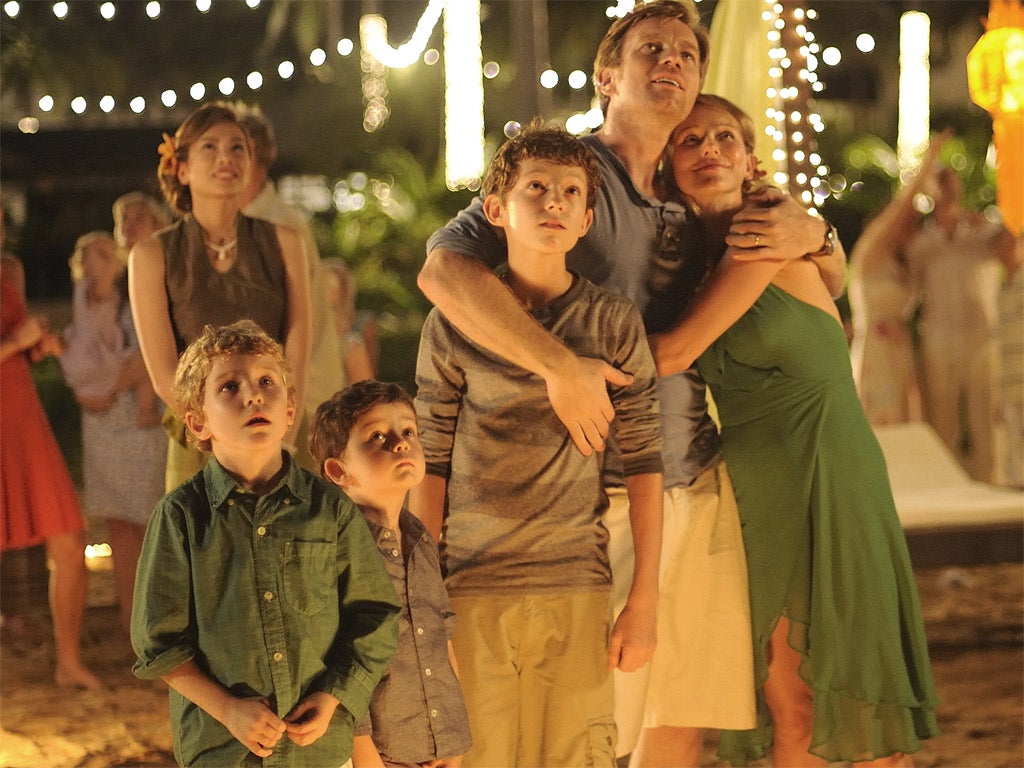PRs rejoice! The Twitter critics are here, and they love your new movie
Some will see the rise of the Twitcrits as a "democratisation", but surely that would need a few negative remarks alongside the glowing endorsements


My favourite Broadway story is of the late theatre producer David Merrick. Annoyed by poor reviews for one of his productions, he used the phone book to find a bunch of people with the same first and last names as the main New York critics, wined and dined them, gave them best seats in the house, and asked them for their reactions to the show, which, surprise surprise, were very positive. He then plastered their words across the outside of the theatre.
It has taken a few decades, but, thanks to Twitter, today's producers are finally catching up with Mr Merrick. A newspaper ad for the film The Impossible, starring Naomi Watts and Ewan McGregor, has eschewed the normal round of critics and printed mini-reviews by members of the public that they found on Twitter. "One of the best films I've seen" says one TwitCrit, if I may so name the new breed of critics. "Amazing, definitely recommend it" says another.
I couldn't resist a small smile at this, as at a dinner with some leading West End theatre producers recently, I suggested it might not be long before they do the same. "We're not that desperate," came the reply. But I suspect that where film leads, theatre will follow. Celebrity quotes from Twitter are already used to promote shows, and the head of the English National Opera tells me a fascinating story of how Stephen Fry (4m followers and rising) saw a production at ENO, tweeted at the interval how much he was enjoying it, and the next day the box office was besieged with calls and sold out the run.
Celebrity endorsements are part of the business of putting on a show and have been for a while. But the Joe Public endorsement – that's something else. The marketing of The Impossible will not be a one-off. The TwitCrit is, I'm sure, here to stay. No, it doesn't, thank goodness, mean the end of the professional critic. But they are increasingly going to have to live alongside positive endorsements selected from blogs and Twitter. And movie and theatregoers are going to have to look harder at newspaper ads and billboards and read the small print underneath the superlatives.
Some will see it as a "democratisation" of the critical process, though to be truly democratic it would surely need a few negative remarks from Twitter alongside the glowing endorsements. I can see that fans of certain performers might well like to see the views of other fans as well as those of professional critics. Kept in proportion, this might not be such a bad idea.
And I do see one advantage of the age of the Twitcrit. We could have analysis not just from professional critics but from experts and interested parties. Death of a Salesman could be reviewed by a salesman. That would be poignant, though not as heart-rending as the Oedipus review from the head of Mumsnet.
Patronising pedants need to see the bigger picture
I was delighted to see my favourite film of last year, Argo, win the top award at the Golden Globes. I hope that this tense and compelling film does the same at the Oscars. But I am rather baffled that the people who decide on the Golden Globes, film writers for goodness' sake, differentiate in a rather patronising way between different genres of film. Argo actually didn't win Best Picture, as it might at the Oscars, which has a Best Picture category. It won Best Picture, Drama. Les Misérables won Best Picture, Musical or Comedy. Musical or Comedy? Are they lesser movies than dramas? And, most baffling of all, why are musicals and comedies deemed right to consider together, but not comedy and drama? Much easier surely just to have Best Picture, and not insinuate that comedies and musicals are a lesser species.
Lord Hall could hit high notes with opera coverage
The Royal Opera House hosted a gathering the other day for the head of the Royal Opera, Kaspar Holten, and the music director, Antonio Pappano, to introduce the new season to journalists. The season contains an impressive number of new operas in Covent Garden's studio theatre, as well as a varied repertoire on the main stage. The departing chief executive of the Royal Opera House, Tony Hall, joked that his wish was for the two gentlemen to keep a seat in the auditorium for the former chief exec. I have an idea for Lord Hall. In his new role as Director-General of the BBC, he could decree that every production at Covent Garden is televised. That will guarantee him a seat... and send out a great signal about his plans for arts coverage on BBC TV.

Join our commenting forum
Join thought-provoking conversations, follow other Independent readers and see their replies